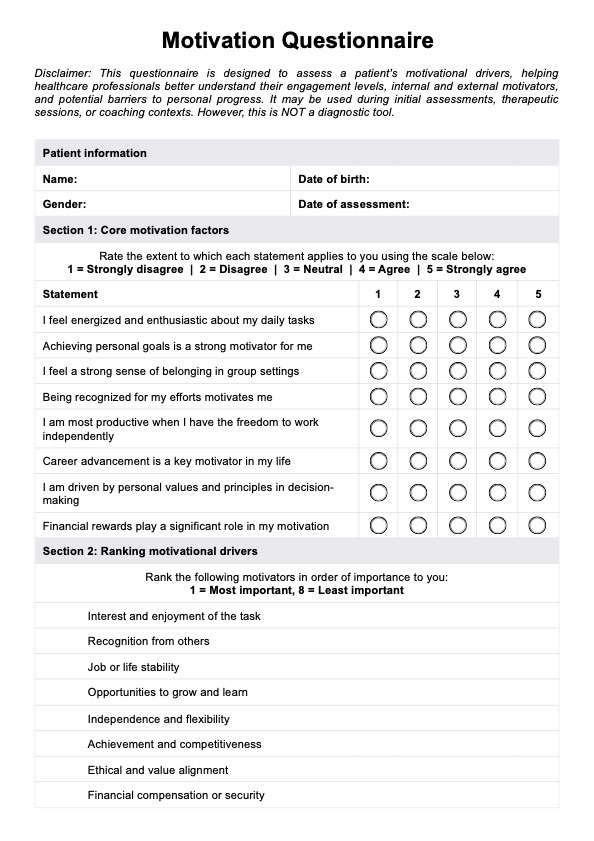Motivation Questionnaires help professionals understand what motivates individuals, enabling them to tailor interventions, treatment plans, or educational strategies to align with the person's motivations. This often leads to better engagement and improved outcomes.

Motivation Questionnaires
Boost patient engagement with Motivation Questionnaires. Understand and enhance motivation for better outcomes.
Use Template
Motivation Questionnaires Template
Commonly asked questions
Intrinsic motivations are driven by personal interests, values, or enjoyment, while external factors like rewards, recognition, or social pressure influence extrinsic motivations.
Motivation Questionnaires can be administered in various formats, including paper-based surveys, online forms, or through specialized software or apps. The choice of design depends on the context and goals of the assessment.
EHR and practice management software
Get started for free
*No credit card required
Free
$0/usd
Unlimited clients
Telehealth
1GB of storage
Client portal text
Automated billing and online payments











